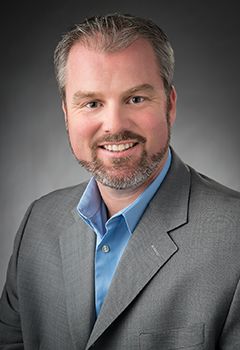The ultimate manifestation of inequity is that, in the worst of times, the vulnerable suffer the most.
The data doesn’t lie. COVID-19 is attacking our community, and its most powerful weapon is inequity. We need to wake up and take action.
Latinos represent 27% of our county’s population, yet they constitute 70% of our COVID-19 cases. A recent survey released by First 5 Sonoma County found that 66% of Spanish-speaking households had lost all or some of their income, versus only 35% of English-speakers. My family and I are a part of that latter group. We’ve been impacted, but are still financially stable. While we may think of ourselves as proactive and prepared, we must acknowledge that something else allowed us to be stable and safe at home, our privilege.
What a loaded word, privilege. It’s invisible to those who experience the benefit of it every day, and painfully visible to those who lack it.
Others recoil at its mere mention. They see it as an affront to their hard work and individual determination to pursue and achieve the American dream. I, however, see it differently. I acknowledge that the system in which I operate was built by people who look and speak and think and act like me. This construct is open and accessible to me. But for those who speak another language, who don’t have internet access, a home printer and scanner, tech knowledge or a full time job to work during the time call centers are open for questions, it’s not open and accessible.
For those of us with our hands on the levers and buttons of this system, we must lift the veil that hangs over that invisible privilege so that we can take action to ensure that our public systems of government are open and accessible to many more of our residents.
As the lead for our county’s efforts on Latinx outreach during this pandemic, I’ve had the additional privilege to work with Latino community leaders, to hear the frustration, to feel the outrage and to experience their resolve and ganas to help us do better. Whether community activist, farmworker or business owner, they have all stepped up and lifted their voices en confianza y con esperanza – with belief and with hope.
That is why I write this message. I want to share what I’ve heard, to commit to do better, and to ask you to join me.
To that end, at a recent board of supervisors meeting, I proposed that the county fully embrace its commitment to equity by creating a home for this work inside our county government. My fellow supervisors agree and support our work to center equity in our policymaking, in our emergency response, and in our recovery plans. It is time –— in fact, we are late to the game — but we will accelerate our efforts and flatten the curve that has spiked in our Latino community. To be successful, we affirm:
- We see the ways in which our bilingual/bicultural employees bring value to their work and to ours. We need to create a senior equity officer position, hire permanent staff, develop a strategic plan, institutionalize the value that exists in our workforce now and pull them and this work into the center of our response and recovery.
- No longer shall we assume that translation equals connection. We need to have bilingual/bicultural staff empowered to design and disseminate information directly to community members — not through our normal mainstream channels — but directly into trusted outlets where people are.
- No longer shall we speak in vague platitudes about diversity, equity and inclusion. We must adopt internal policies for our leadership and staff, truly value our diverse staff’s skills, and hold ourselves accountable to actions, milestones and metrics in our performance reviews.
- No longer shall we confuse words like partnership and collaboration with shared investment and accountability. We must step forward as leaders and show our commitment through our budget and our organization.
These proposals come from the voices of our Latino community.
If you talk with leaders in the Latino community, they are not surprised by the numbers. Instead, they are saddened and outraged that we have not done enough.
I am also outraged, and you should be, too.
During the 2017 fire siege, we lived through a disaster that attacked indiscriminately. Middle class neighborhoods, low-income apartments and million dollar homes — they all burnt with the same blind intensity.
But while that disaster shared its destruction equally across all walks of life, the black soot seeped into our community’s existing cracks of inequity, highlighting them and widening them during the recovery. Forty percent of the homes lost were occupied by long-term, working class renters who couldn’t afford our high priced market. Their finances were decimated. Federal disaster support from agencies like FEMA and the SBA flowed more readily towards the haves than the have-nots. The disaster didn’t discriminate, but the recovery did.
This disaster, this pandemic — it’s different. This disaster discriminates each and every day because risk is disproportionately weighted on those who do not have the choice to telecommute, to order groceries from Instacart, to apply for and receive unemployment benefits. If you live in multifamily housing, travel via carpool or public transportation, or work in an hourly wage-driven service sector, you’re more at risk of contracting COVID.
If you have no paid leave or health benefits, you’re more at risk of financial ruin. We have verified reports of newly homeless farmworkers sleeping near the river in desperate need of food, families at their wits’ end and unable to access support programs because of complex paperwork and documentation requirements, Latino-owned businesses on the brink of closing forever after having worked decades to leverage sweat equity into financial equity.
Some of you might be reading this and say, “Well this isn’t just about race and language. People of all backgrounds, ethnicities and languages are getting hit.” Yes. And the working poor, Spanish-speaking communities are getting sicker more and getting harder hit economically. This message, today, urges us to face those numbers, this inequity, and rise to this call to action.
I’m white. I was born and raised here in Sonoma County. I come from a family of grape growers and winemakers. I grew up speaking Spanish in the vineyards with my friends from Michoacán and Guadalajara. I went to quinceañeras and tried to dance to ranchera music. I lived a Spanish-speaking life in the Peace Corps in Bolivia and later led efforts to expand federal programs in U.S./Mexico border towns. Here at home, I’ve used my fluency in Spanish to respond to disasters and to get vital information into the hands of all my brothers and sisters throughout our community. This is what an ally looks like. And I take that responsibility seriously and con honor.
I ask all of you to join me and to take action today, tomorrow and each and every week. Open your eyes to what’s going on to the community. I got up the other day and donated to UndocuFund. Today I donated to Corazón Healdsburg. These are two of the many local groups that need our help to help our community.
Demand more of yourself and the institutions you have a hand in, whether that be your business, school board, city council, or in my case, the board of supervisors.
Hold yourselves, each other, and all of us accountable. And above all, follow the wise comment shared with me by a county employee, leader and friend.
“Supervisor Gore, we cannot make progress by calling people OUT. We need to call them IN.”
Calling you in, folks. Here we go. Adelante, juntos. Forward, together.
James Gore is the Fourth District Supervisor for Sonoma County.









